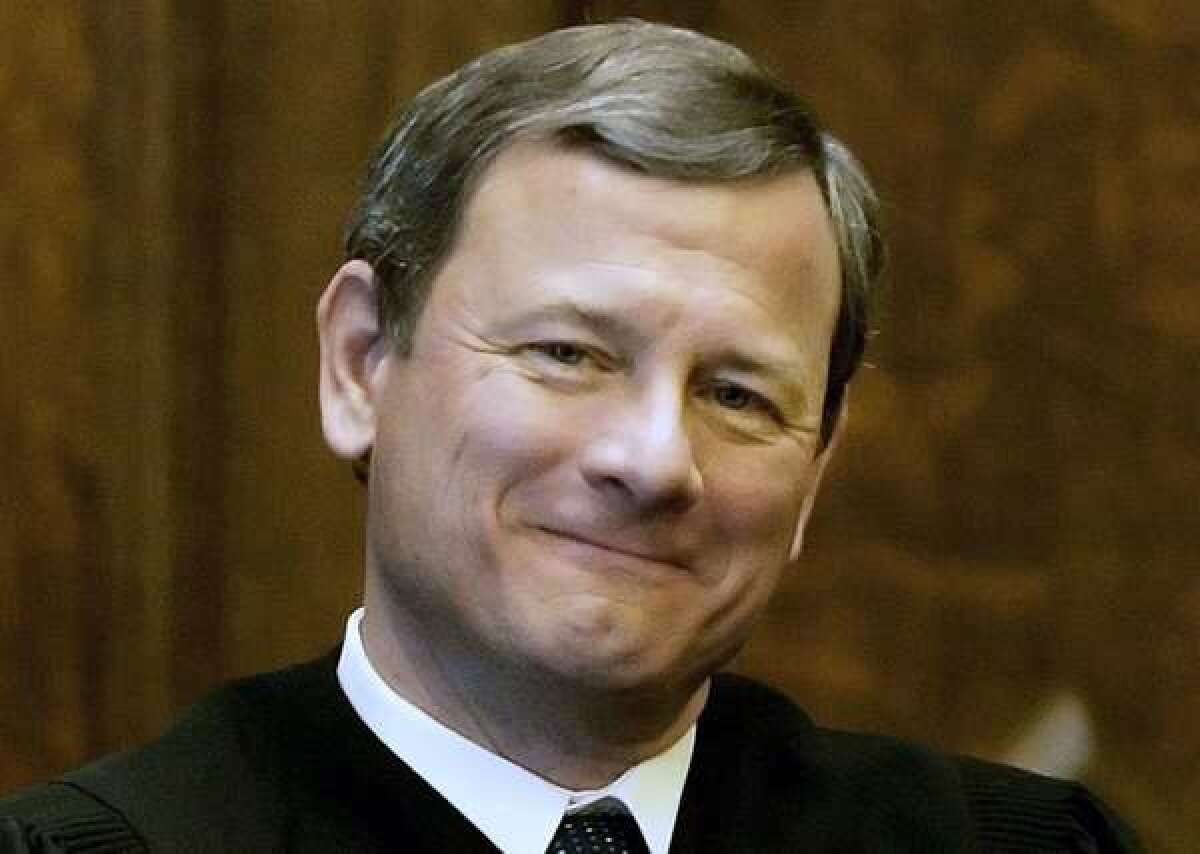A tea party talking point at the Supreme Court

Chief Justice John G. Roberts Jr. isn’t a member of the tea party, but he alluded to one of the movement’s obsessions the other day during oral arguments in one of the more unusual cases of the court’s current term. It involves Carole Anne Bond, a Pennsylvania woman who tried to poison her romantic rival by smearing dangerous chemicals on her doorknob. Bond was prosecuted by the feds under a statute enacted to implement the 1993 Chemical Weapons Convention.
Bond’s lawyer — superstar litigator and former U.S. Solicitor General Paul Clement — argued that the federal government lacked the constitutional authority to prosecute a purely local crime. Solicitor General Donald Verrilli Jr. countered that if a treaty is valid, so is legislation enforcing it.
Roberts then asked if that didn’t put Congress in the position of being able to engage in “a transfer of authority from the states to the national legislature.”
PHOTOS: Tea party backlash: Protest signs to cheer you up
Verrilli responded: “Well, the framers thought that the two-thirds guarantee — the two-thirds ratification requirement [for treaties] — was an important structural guarantee to protect the interests of the states.”
To which Roberts replied: “At a time when the Senate was elected by the state legislatures.” This happens to be a historical detail much on the mind of some tea party activists, who pine for the repeal of the 17th Amendment providing for the popular election of senators, which was ratified in 1913.
Here’s the argument for repeal as made by Charles C.W. Cooke this year in the National Review: “The Senate was not intended to be the people’s representative body but that of the states. Lest the federal government ‘swallow up the state legislatures,’ George Mason insisted to his fellow convention delegates in Philadelphia, ‘let the state legislatures appoint the Senate.’ The delegates backed him unanimously.”
If a popularly elected Senate can’t be trusted to vindicate the rights of the states vis a vis the federal government, that task falls to the Supreme Court — and that seemed to be Roberts’ point.
That doesn’t make him a tea partier, but it does indicate that he takes states’ rights seriously. That’s bad news for liberals who see states’ rights as an anachronism at best and as a pretext for racism at worst. But it’s good news for Carole Anne Bond.
ALSO:
Albert Camus -- forever modernIn Tucson, the hypocrisy footprint
No longer the Greatest Generation’s VA
More to Read
A cure for the common opinion
Get thought-provoking perspectives with our weekly newsletter.
You may occasionally receive promotional content from the Los Angeles Times.






